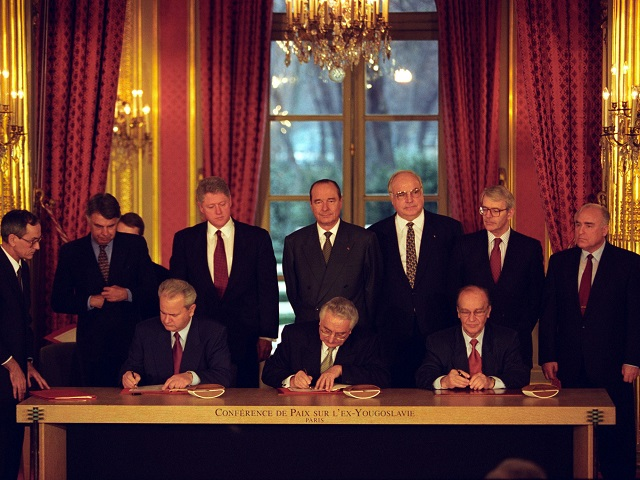
Introduction
After the dissolution of the Socialist Federal Republic of Yugoslavia, Bosnia and Herzegovina (BiH) gained its independence with a referendum held in 1992. Bosniacs, Bosnian Croats, and Bosnian Serbs were the main sides of war in Bosnia and Herzegovina. The war caused more than 100,000 deaths and hundreds of thousands of injuries, while millions of people became refugees. Four years of brutal war ended with the agreement reached and initialed on 21 November 1995 in Dayton, the US. The agreement was reached under United States leadership and thanks to the facilitating role of the international community. In this context, the “General Framework Agreement for Peace (GFAP) in Bosnia and Herzegovina” was formally signed by the Republic of Bosnia and Herzegovina, the Republic of Croatia, and the Federal Republic of Yugoslavia together with eleven annexes in Paris on 14 December 1995.[1] BiH consist of the two Entities: the Federation of Bosnia and Herzegovina and the Republika Srpska (RS).
The Constitution of BiH was included as Annex 4 of GFAP. The constitution envisaged an equal sharing of power among the three constituent peoples of Bosniacs, Croats, and Serbs. The unique state structure invented for BiH in the Constitution relies on delicate balances between the three constituent peoples. This state structure contains complex procedures and mechanisms that are difficult to operate smoothly. Considering this, it was envisaged to appoint a High Representative with the authority to resolve the civil matters of GFAP. In this respect, GFAP’s Annex 10 (Agreement on Civilian Implementation of the Peace Settlement) envisaged the "the designation of a High Representative, to be appointed consistent with relevant United Nations Security Council resolutions." As per the Article V of the Annex 10, the High Representative was conferred on the power of "final authority in theatre regarding interpretation of the Agreement on the civilian implementation of the peace settlement." Besides, Article II (1) (d) of Annex 10 provides power to High Representative (HR) to arbitrate any difficulties arising in connection with civilian implementation. It should be mentioned that Article 2 of Annex 10 states that “the parties request the designation of a High Representative, to be appointed consistent with relevant United Nations Security Council resolutions.” The parties to this Annex are the Republic of Bosnia and Herzegovina, the Republic of Croatia, the Federal Republic of Yugoslavia, the Federation of Bosnia and Herzegovina, and the Republika Srpska.
Peace Implementation Council, its Steering Board and the “Bonn Powers” of HR
Following the signing of GFAP, a Peace Implementation Conference was held in London on 8-9 December 1995 to ensure the sustainability of the agreement. As a result of the meeting, it was decided to establish a Peace Implementation Council (PIC). The PIC consists of 55 countries and organizations that in different ways support it.[2] There are also observer states. The London Peace Implementation Conference also established the Steering Board of the PIC to work under the chairmanship of the High Representative as the executive arm of the PIC. The Steering Board members are Canada, France, Germany, Italy, Japan, Russia, United Kingdom, United States, the Presidency of the European Union, the European Commission, and Turkey (representing the Organization of the Islamic Conference).
PIC, in its meeting held in Bonn in 1997, welcomed the High Representative’s intention to use their final authority regarding interpretation of the Agreement on the Civilian Implementation of the GFAP to facilitate the resolution of difficulties by making binding decisions, as they judge necessary. As noted above, “final authority” terminology is contained in Article V of Annex 10. In this respect, paragraph XI.2 of the Conclusions of the Peace Implementation Conference held in Bonn on 9 and 10 December 1997 stated that the HR can make the following binding decisions:
- interim measures to take effect when parties are unable to reach agreement, which will remain in force until the Presidency or Council of Ministers has adopted a decision consistent with the GFAP on the issue concerned.
- other measures to ensure implementation of GFAP throughout BiH and its Entities, as well as the smooth running of the common institutions. Such measures may include actions against persons holding public office or officials who are absent from meetings without good cause or who are found by the High Representative to be in violation of legal commitments made under GFAP or the terms for its implementation.[3]
The above measures have been used frequently by various High Representatives in the past. The use of this authority is usually referred to simply as the “Bonn Powers”. There is no doubt that these powers, legal aspects of which are discussed and criticized in the doctrine extensively, have a sui generis character. It is possible to consider these powers as an example of using extraordinary methods to contribute to international peace and security under extraordinary circumstances. There are legitimate legal opinions claiming that the PIC cannot delegate such powers to the Office of the High Representative (OHR), as the OHR is not a subsidiary of the PIC. Since the PIC decisions regarding these powers were referred to in the UN Security Council resolutions, there are also opinions that linking these powers with the Chapter 7 of the UN Charter as well as the views that strongly criticize this approach. A uniform example of such statements contained in many UN Security Council resolutions in this respect is presented below:
“4. Emphasizes its full support for the continued role of the High Representative in monitoring the implementation of the Peace Agreement and giving guidance to and coordinating the activities of the civilian organizations and agencies involved in assisting the parties to implement the Peace Agreement, and reaffirms that under Annex 10 of the Peace Agreement the High Representative is the final authority in theatre regarding the interpretation of civilian implementation of the Peace Agreement and that in case of dispute he may give his interpretation and make recommendations, and make binding decisions as he judges necessary on issues as elaborated by the Peace Implementation Council in Bonn on 9 and 10 December 1997;”[4]
Reasons for Failed Attempts to Close OHR Since 2006
When the past efforts of the PIC are examined, it will be seen that the integration of BiH into the Euro-Atlantic structures and the completion of the necessary reforms by the country's administration for this purpose are the main goals of the international community. In this context, Political Directors of the PIC Steering Board agreed at their meeting in Sarajevo on 22 June 2006 that it was in the interest of all for BiH to take full responsibility for its own affairs. To this end, it was decided that the OHR will immediately begin preparations to close on 30 June 2007. The Steering Board agreed also to review and confirm in early 2007 the OHR closure, considering the overall situation in BiH and the region. It was further decided that the Steering Board will then seek endorsement of such closure by the UN Security Council.[5] However, due to adverse developments in BiH, this decision could not be implemented, and a new decision had to be taken in 2008. In this context, in the statement published following the Political Directors of the PIC Steering Board meeting held in Brussels on 19 November 2008, it was stated that the OHR could not be closed unless the determined reforms were realized, and it was emphasized that the frequent challenges to the constitutional order of BiH and, in particular, to the sovereignty and territorial integrity of BiH or to the existence of the Republika Srpska as one of two entities under the Constitution of BiH are unacceptable.[6] It should be underlined that these separatist threats always come from the Republika Sırpska administration. The following last paragraph of the mentioned PIC Communique represents a strong response to these threats:
“BiH is an internationally recognised sovereign state whose territorial integrity is guaranteed by the GFAP. The Steering Board underlines that the International Community retains the necessary instruments to counter destructive tendencies and that it will not allow attempts to undermine the GFAP, whether from inside or outside the country. The OHR will continue to ensure full respect for the GFAP and to monitor progress in respect of the objectives and conditions and the PIC Steering Board will keep the situation under constant review.”
It cannot be said that there has been a substantiative improvement in the stability of BiH, or that the threats to the territorial integrity and sovereignty of the country have subsided in the nearly thirteen years since 2008. One of the latest examples of this is the decision taken in the Republika Sırpska National Assembly (RSNA) at the end of 2019 on the right to self-determination and NATO membership. In this regard, according to press report, the set of conclusions adopted by the mentioned assembly affirmed the right of self-determination of RS, reaffirmed RS’ opposition to accession to NATO, and stressed that “in the event of a violent attempt to join Bosnia and Herzegovina with NATO, Republika Srpska will hold a referendum in which citizens will decide on Republika Srpska’s membership of any military alliance.”[7] In response to this separatist decision, the Ambassadors of the PIC Steering Board made a statement on 13 November 2018 and underlined, among others, the following crucial points for BiH sovereignty, constitutional system and territorial integrity:
- BiH was recognized as a sovereign country in 1992 and transformed with the signature of the DPA (Dayton Peace Agreement) into a State consisting of two Entities. The RSNA Conclusions contradict these facts.
- BiH enjoys sovereignty and the BiH Constitution does not leave any room for any “sovereignty” of the Entities, which only exist legally by virtue of the BiH Constitution. This has been affirmed by the BiH Constitutional Court on many occasions.
- Republika Srpska has no right to secede and operates under the DPA which recognizes the territorial integrity, political independence, and sovereignty of BiH.
- The RS is obliged by the DPA to comply with the decisions of the BiH institutions and to “provide all necessary assistance to the government of BiH to enable it to honour the international obligations of BiH.[8]
Turkey, as a member of the PIC Steering Board, is a party to this statement. However, according to the footnote in the statement, one of the members of the Steering Board, Russia, announced that it disagrees with the statement. It is possible to say that this declaration of disagreement by Russia bears importance in terms of future developments in BiH.
What could happen in Bosnia and Herzegovina in the coming period?
Valentin Inzko, an Austrian diplomat who has been serving as High Representative in Bosnia and Herzegovina since 2009 is expected to complete her tenure in the upcoming period. According to press reports, Germany is considering nominating an MP from the Christian Social Union in Germany, Mr. Christian Schmidt, a former junior minister in the Ministry of Defence and former minister of agriculture, as the next head of the Office of the High Representative.[9] There is a strong possibility that Germany's idea of nominating a strong candidate for this post stems from its grasp of the seriousness of the negative developments in BiH.
According to press reports, current Russian Ambassador to Belgrade, Botsan Kharchenko, who was the former Ambassador to BiH and served as Russia’s representative for many years in the PIC Steering Board, said to the press that "the shutdown of the OHR should be discussed, and not the appointment of a new High Representative." He also stated that “Moscow did not approve the attempts of appointment of a new chief of OHR” and recalled that “the appointment of the OHR is not possible without a decision and confirmation by the UN Security Council, where Russia has veto power.”[10] Similarly, the parliament of the Republika Srpska has very recently called for the closure of the Office of the High Representative. As per the press reports, Milorad Dodik, the Serb member of the Presidency of BiH, addressing the parliament said that;
“Twenty-six years on from the war we are living under a protectorate. Most of the problems we are dealing with come from the actions of the High Representatives and the so-called international community. It is time for the OHR to be closed, and responsibility for the future and functioning of Bosnia to become the exclusive right and competence of the people of Bosnia.”[11]
The developments summarized above suggest that Russia, in the coming period, with the support of the Bosnian Serb administration, will try to rule out the powers of the PIC and to close the OHR. It is understood that Russia, in such a game plan, will try to employ its UN Security Council membership as a trump card.
Considering these worrisome developments, it is possible to assert that the continuation of the powers of the PIC, including the Bonn Powers, is essential for the preservation of the sovereignty and territorial integrity of BiH within the framework of its constitution. In this context, Turkey, as a member of the PIC Steering Board, has the ability as well as the responsibility as a Balkan state with exceptional ties with BIH, to influence the shaping of the decisions to be taken regarding the continuation of OHR. Turkey, in this process, as it did in the past, should staunchly defend the sovereignty and territorial integrity of BiH and must strongly oppose the approaches that aim to dismember BiH.
*Photo: Balkan Insight
[1] Madeleine Albright, “Letter Dated 29 November 1995 from the Permanent Representative of the United States of America to the United Nations Addressed to the Secretary-General” (United Nations, November 30, 1995), A/50/790- S/1995/999, https://peacemaker.un.org/sites/peacemaker.un.org/files/BA_951121_DaytonAgreement.pdf.
[2] PIC Members and Participants: Albania, Austria, Belgium, Bosnia and Herzegovina, Bulgaria, Canada, China (resigned in May 2000), Croatia, Czech Republic, Denmark, Egypt, Federal Republic of Yugoslavia (now the republics of Serbia and Montenegro), Finland, France, Germany, Greece, Hungary, Ireland, Italy, Japan, Jordan, Luxembourg, Malaysia, Morocco, Netherlands, North Macedonia, Norway, Oman, Pakistan, Poland, Portugal, Romania, Russian Federation, Saudi Arabia, Slovak Republic, Slovenia, Spain, Sweden, Switzerland, Turkey, Ukraine, United Kingdom and United States of America; the High Representative, Brcko Arbitration Panel (dissolved in 1999 after the Final Award was issued), Council of Europe, European Bank for Reconstruction and Development (EBRD), European Commission, International Committee of the Red Cross (ICRC), International Criminal Tribunal for the former Yugoslavia (ICTY), International Monetary Fund (IMF), North Atlantic Treaty Organisation (NATO), Organisation for Security and Co-operation in Europe (OSCE), United Nations (UN), UN High Commissioner for Human Rights (UNHCHR), UN High Commissioner for Refugees (UNHCR), UN Transitional Administration of Eastern Slavonia (UNTAES; disbanded in January 1998) and the World Bank. (Source: “Peace Implementation Council,” International Organization, Office of The High Representative, 2015, Peace Implementation Council.)
[3] “PIC Bonn Conclusions” (Office of the High Representative, October 12, 1997), http://www.ohr.int/pic-bonn-conclusions/#11.
[4] “Resolution 1845 (2008) Adopted by the Security Council at Its 6021st Meeting, on 20 November 2008,” November 20, 2008, S/RES/1845 (2008), https://undocs.org/S/RES/1845(2008).
[5] PIC SB Political Directors Sarajevo, “Communique by the PIC Steering Board Towards Ownership: From Peace Implementation to Euro-Atlantic Integration” (Office of the High Representative, June 23, 2006), http://www.ohr.int/communique-by-the-pic-steering-board-3/.
[6] PIC SB Political Directors, “Communiqué of the Steering Board of the Peace Implementation Council,” International Organization, Office of The High Representative, November 10, 2008, http://www.ohr.int/communique-of-the-steering-board-of-the-peace-implementation-council-8/.
[7] Danijel Kovacevic, “Bosnian Serb Lawmakers Claim Right to Self-Determination,” Balkan Insight, November 12, 2019, sec. News, https://balkaninsight.com/2019/11/12/bosnian-serb-lawmakers-claim-right-to-self-determination/.
[8] PIC SBA, “Statement of the Ambassadors of the Peace Implementation Council Steering Board *” (Office of the High Representative, November 13, 2019), http://www.ohr.int/statement-of-the-ambassadors-of-the-peace-implementation-council-steering-board/.
[9] Majda Ruge, “Great Power Politics in Bosnia: How Berlin Can Stabilise a Dysfunctional State,” European Council on Foreign Relations, March 2, 2021, sec. Wider Europe, https://ecfr.eu/article/great-power-politics-in-bosnia-how-berlin-can-stabilise-a-dysfunctional-state/.
[10] Y. Z., “Russia Has Returned the Appointment of a New High Representative to the Beginning,” Sarajevo Times, February 14, 2021, sec. Politics, http://www.sarajevotimes.com/russia-has-returned-the-appointment-of-a-new-high-representative-to-the-beginning/.
[11] Danijel Kovacevic, “Bosnian Serb Parliament Says ‘No’ to New High Representative,” Balkan Insight, March 10, 2021, sec. News, https://balkaninsight.com/2021/03/10/bosnian-serb-parliament-says-no-to-new-high-representative/.
© 2009-2025 Center for Eurasian Studies (AVİM) All Rights Reserved
No comments yet.
-
 IS GREECE A CHINA’S “TROJAN HORSE” OR “DRAGON’S HEAD” IN EUROPE?
IS GREECE A CHINA’S “TROJAN HORSE” OR “DRAGON’S HEAD” IN EUROPE?
Teoman Ertuğrul TULUN 15.11.2019 -
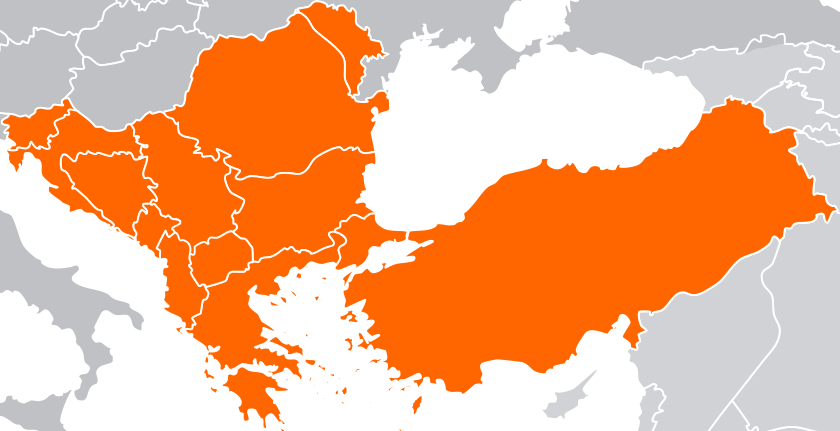 BALKANS 2016: INTEGRATION EFFORTS IN A TIME OF UNCERTAINITY
BALKANS 2016: INTEGRATION EFFORTS IN A TIME OF UNCERTAINITY
Teoman Ertuğrul TULUN 09.01.2017 -
 CONSTRUCTIVE EURASIANISM IN THE EASTERN MEDITERRANEAN: TÜRKİYE’S ROLE IN BALANCING COOPERATION, SOVEREIGNTY, AND REGIONAL STABILITY
CONSTRUCTIVE EURASIANISM IN THE EASTERN MEDITERRANEAN: TÜRKİYE’S ROLE IN BALANCING COOPERATION, SOVEREIGNTY, AND REGIONAL STABILITY
Teoman Ertuğrul TULUN 28.03.2025 -
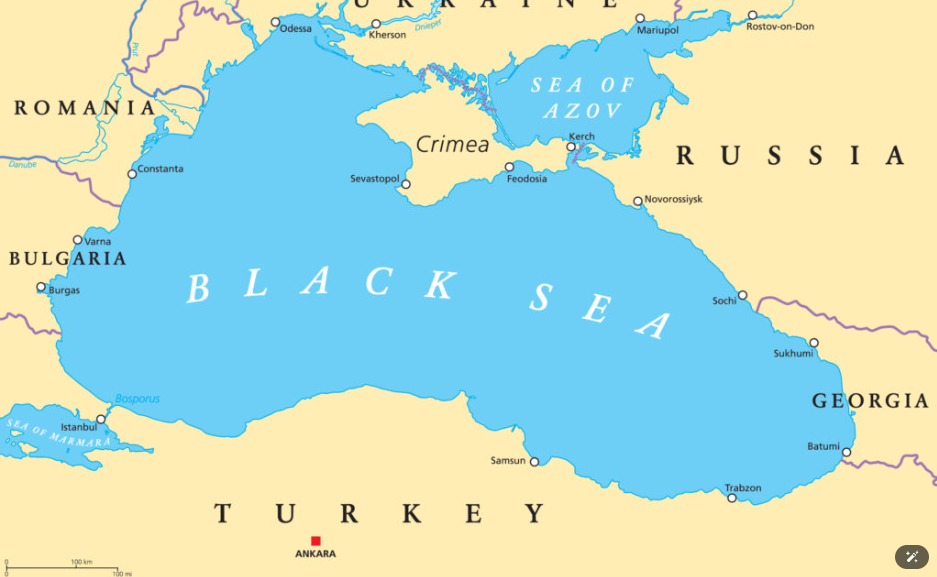 GUARDIANSHIP OR EQUILIBRIUM? POWER, AND THE LEGACY OF ORDER IN THE BLACK SEA
GUARDIANSHIP OR EQUILIBRIUM? POWER, AND THE LEGACY OF ORDER IN THE BLACK SEA
Teoman Ertuğrul TULUN 02.09.2025 -
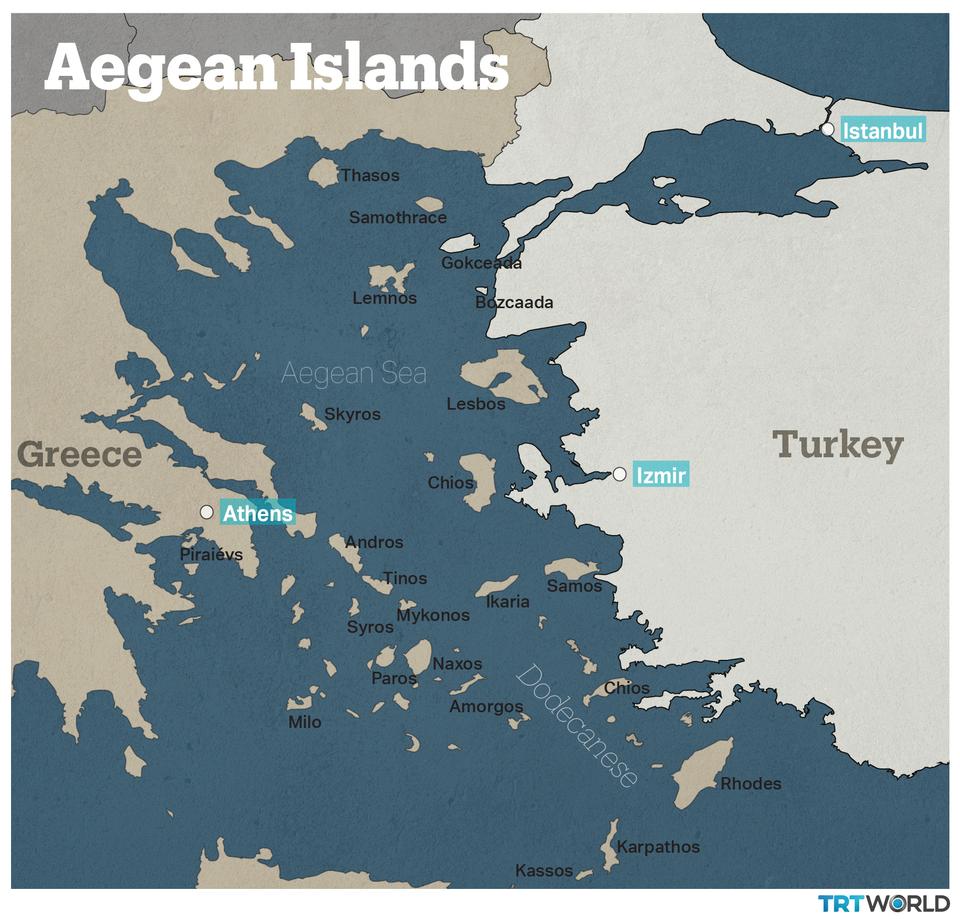 GREEK FOREIGN MINISTER DENDIAS CONCEDES THE DEMILITARIZED STATUS OF THE EASTERN AEGEAN ISLANDS AND THE DODECANESE
GREEK FOREIGN MINISTER DENDIAS CONCEDES THE DEMILITARIZED STATUS OF THE EASTERN AEGEAN ISLANDS AND THE DODECANESE
Teoman Ertuğrul TULUN 14.03.2022
-
 CHAPTER BY CHAPTER SYNOPSIS AND REVIEW OF TURKS AND ARMENIANS: NATIONALISM AND CONFLICT IN THE OTTOMAN EMPIRE BY JUSTIN MCCARTHY - 5
CHAPTER BY CHAPTER SYNOPSIS AND REVIEW OF TURKS AND ARMENIANS: NATIONALISM AND CONFLICT IN THE OTTOMAN EMPIRE BY JUSTIN MCCARTHY - 5
Mehmet Oğuzhan TULUN 22.10.2015 -
 ATTEMPTS TO PUT PUTIN ON TRIAL: BUT WHAT ABOUT THOSE GUILTY IN THE WEST?
ATTEMPTS TO PUT PUTIN ON TRIAL: BUT WHAT ABOUT THOSE GUILTY IN THE WEST?
Onur URAZ 03.05.2023 -
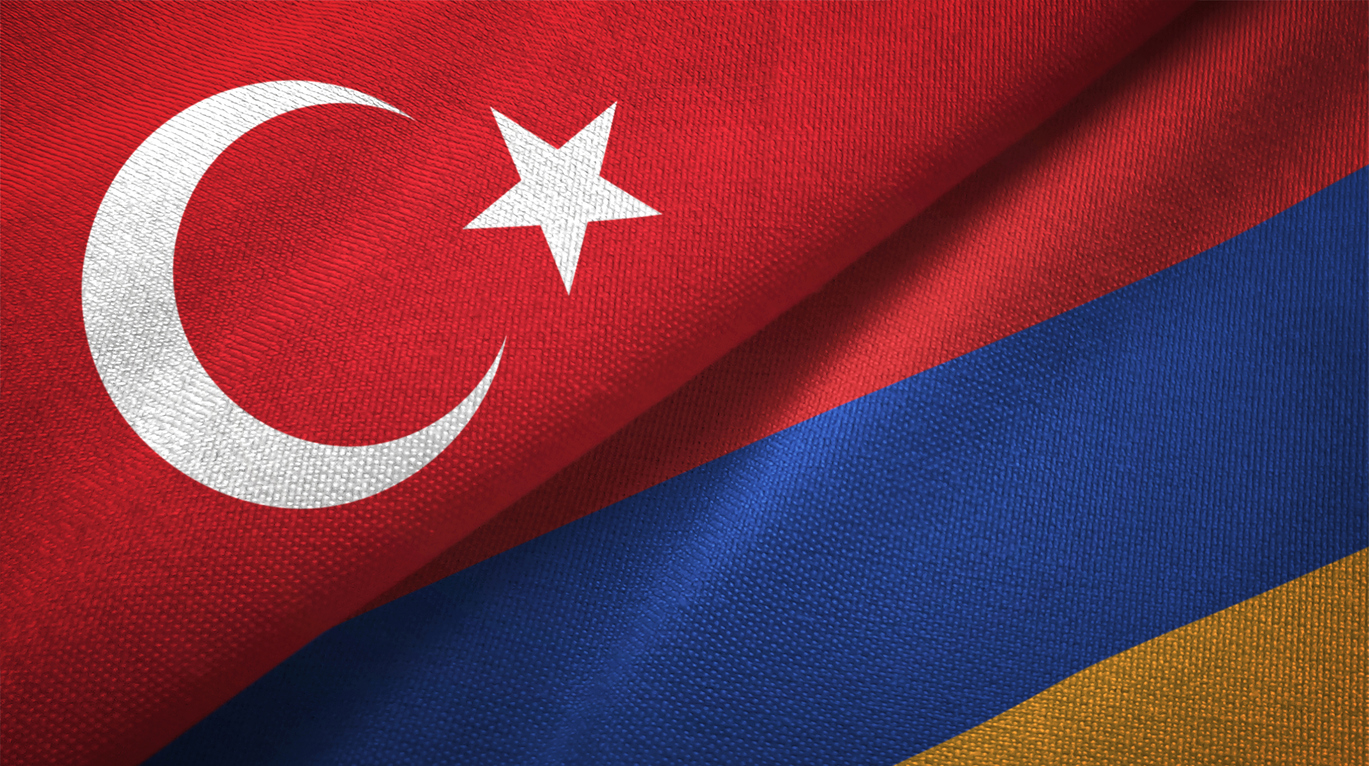 ATTEMPTS TO UNDERMINE THE NORMALIZATION PROCESS OF TÜRKİYE - ARMENIA RELATIONS
ATTEMPTS TO UNDERMINE THE NORMALIZATION PROCESS OF TÜRKİYE - ARMENIA RELATIONS
Hazel ÇAĞAN ELBİR 29.12.2022 -
 BECOMING THE PART OF THE PROBLEM: THE FAULTY POLICIES OF THE WEST IN EURASIA AND THE SOUTH CAUCASUS
BECOMING THE PART OF THE PROBLEM: THE FAULTY POLICIES OF THE WEST IN EURASIA AND THE SOUTH CAUCASUS
Turgut Kerem TUNCEL 11.08.2015 -
 CONSEQUENCES OF MATERIAL BREACH OF THE LAUSANNE PEACE TREATY
CONSEQUENCES OF MATERIAL BREACH OF THE LAUSANNE PEACE TREATY
Teoman Ertuğrul TULUN 07.10.2020
-
25.01.2016
THE ARMENIAN QUESTION - BASIC KNOWLEDGE AND DOCUMENTATION -
12.06.2024
THE TRUTH WILL OUT -
27.03.2023
RADİKAL ERMENİ UNSURLARCA GERÇEKLEŞTİRİLEN MEZALİMLER VE VANDALİZM -
17.03.2023
PATRIOTISM PERVERTED -
23.02.2023
MEN ARE LIKE THAT -
03.02.2023
BAKÜ-TİFLİS-CEYHAN BORU HATTININ YAŞANAN TARİHİ -
16.12.2022
INTERNATIONAL SCHOLARS ON THE EVENTS OF 1915 -
07.12.2022
FAKE PHOTOS AND THE ARMENIAN PROPAGANDA -
07.12.2022
ERMENİ PROPAGANDASI VE SAHTE RESİMLER -
01.01.2022
A Letter From Japan - Strategically Mum: The Silence of the Armenians -
01.01.2022
Japonya'dan Bir Mektup - Stratejik Suskunluk: Ermenilerin Sessizliği -
03.06.2020
Anastas Mikoyan: Confessions of an Armenian Bolshevik -
08.04.2020
Sovyet Sonrası Ukrayna’da Devlet, Toplum ve Siyaset - Değişen Dinamikler, Dönüşen Kimlikler -
12.06.2018
Ermeni Sorunuyla İlgili İngiliz Belgeleri (1912-1923) - British Documents on Armenian Question (1912-1923) -
02.12.2016
Turkish-Russian Academics: A Historical Study on the Caucasus -
01.07.2016
Gürcistan'daki Müslüman Topluluklar: Azınlık Hakları, Kimlik, Siyaset -
10.03.2016
Armenian Diaspora: Diaspora, State and the Imagination of the Republic of Armenia -
24.01.2016
ERMENİ SORUNU - TEMEL BİLGİ VE BELGELER (2. BASKI)
-
AVİM Conference Hall 24.01.2023
CONFERENCE TITLED “HUNGARY’S PERSPECTIVES ON THE TURKIC WORLD"









